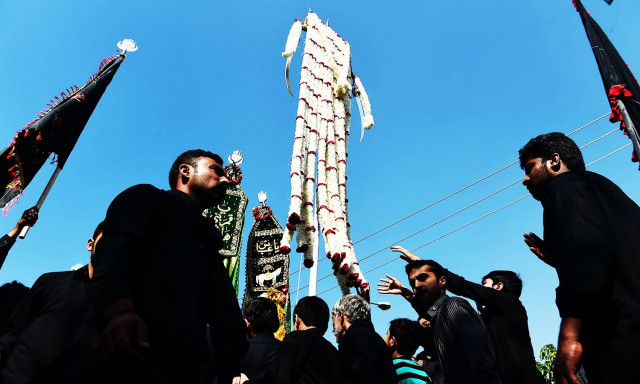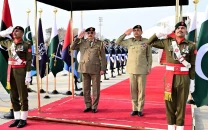CII issues code of conduct for Muharram
Paigham-e-Pakistan to be made guiding principle

The Council of Islamic Ideology (CII) on Tuesday introduced a detailed code of conduct for Muharramul Haram, guided by the principles of the Paigham-e-Pakistan initiative in order to foster a more harmonious and law-abiding society.
Addressing a press conference in the presence of prominent scholars and religious leaders, CII Chairman Dr Muhammad Raghib Hussain Naeemi said that the new code underscored the necessity for all citizens to uphold the Constitution, respect the state, and consistently demonstrate their allegiance.
According to Dr Naeemi, the new code stressed on respecting the fundamental rights enshrined in the Constitution, including equality before the law, social and political rights, and the freedom of expression, belief, worship, and assembly.
The code, he said, prohibited any disrespect towards the Holy Prophet Muhammad (Peace Be Upon Him), all prophets, the mothers of the believers, the Ahl-e-Bayt, the rightly-guided caliphs, or the companions of the holy prophet (PBUH).
No individual or group should obstruct the investigation or prosecution of blasphemy cases. Only religious scholars are permitted to explain Sharia principles based on religious doctrine, with the decision to declare someone an infidel falling under the jurisdiction of the court, he added.
The code also prohibited the promotion of terrorism, provision of training to terrorists, their recruitment, or engagement in any terrorist activities. All Muslim citizens and government officials were called to perform their duties in light of Islamic teachings and the Constitution.
The curriculum in public, private, and religious educational institutions would include the etiquette of diverging opinions, recognising educational institutions as the most suitable places for research on jurisprudential and ideological differences.
The code reaffirmed Islam’s protection of women’s rights, prohibiting anyone from depriving women of their right to vote, education, and employment, or from damaging their educational institutions. The practices such as honour killing, Wani, Karo-Kari, and Watta Satta were explicitly forbidden.
The code stressed the need for imparting Islamic teachings regarding rights of elderly citizens, women, children, transgender individuals, and all other underprivileged groups at all levels. Non-Muslim citizens had the right to practice their religion and perform religious rituals according to their beliefs, it added.
Hate speeches from pulpits, or in gatherings and along with controversial discussions on sectarian topics in newspapers, on television, or on social media, would be prohibited. Freedom of expression was underscored as being subject to Islam and national laws, with a clear mandate that no media programme should promote sectarian hatred or undermine Pakistan’s Islamic identity.
Dr Naeemi rejected any duress in the name of implementing Islam, armed action against the state, violence, and chaos, labelling such acts as rebellion against the spirit of Islamic laws. “No individual has the right to declare anyone, including government and security personnel, as infidel,” he said.



















COMMENTS
Comments are moderated and generally will be posted if they are on-topic and not abusive.
For more information, please see our Comments FAQ